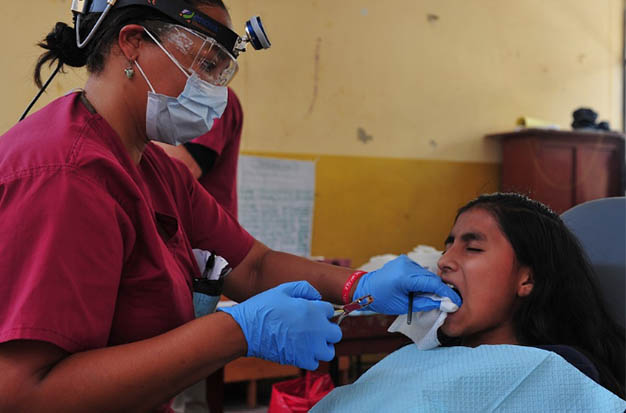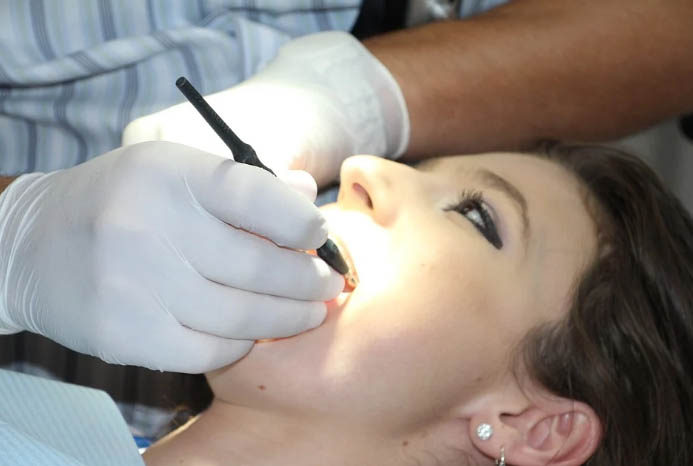
How to Avoid Dry Socket After Tooth Extraction
Can you smoke after having a tooth pulled? No, not for at least 72 hours, is the short reply. Continue reading to find out why smoking makes getting a tooth pulled more likely, what happens if you smoke after having a tooth pulled, what causes dry sockets, and how to smoke safely after having a tooth pulled.
You may require a tooth extraction for a variety of reasons. Most frequently, patients need to have their third molar teeth—often referred to as “wisdom teeth”—removed. After tooth extraction, some swelling and pain are normal, but for smokers, the procedure can be particularly difficult. Smoking adds to the body’s already heavy workload, which is exacerbated when the body is trying to heal. Smoking causes issues after having a tooth extracted because it hinders the body’s ability to heal.
What is a Dry Socket?
There is a direct relationship between smoking and dry socket. This is due to the fact that after having a tooth pulled, a blood clot must form at the extraction site as part of the healing process. This blood clot helps prevent infections, ensures that your extraction wounds heal, and prevents additional blood from leaving the area.
When you have a tooth pulled, a blood clot forms over the extraction site to sooth and heal the underlying bone and nerve endings. Until your gums have fully recovered and your mouth is back to normal, this clot should remain in place.
The clot might occasionally become loose. A dry socket, also known as alveolar osteitis, is a painful side effect that develops if that takes place. Dry socket is uncomfortable and slows healing. It’s crucial to make an effort to avoid it.
Why You Shouldn’t Smoke After a Tooth Extraction
It is possible to harm teeth, gums, and oral tissue when you smoke cigarettes because it produces heat from the smoke and a variety of chemicals.
As a smoker, you’re probably familiar with the stains that smoking causes on teeth, but smoking can also harm your teeth deeply. Oral disease is another danger that smoking has for your teeth.
Cigarette smoke can actually make the tooth extraction site more painful, especially after one has been extracted. Additionally, it slows the healing process, making you more vulnerable to complications and infections.
When it comes to healing, blood flow is a crucial element as well. Smoking lowers the amount of oxygen in the blood, despite the fact that oxygen is essential for healing.
What Happens If I Smoke After a Tooth Extraction
Smoking after tooth removal can result in a variety of complications. Your mouth will be very sensitive after tooth extraction. In the empty socket where the tooth once stood, a blood clot has developed, fibroblasts, a special type of cell, is assisting in the healing of the wound, and bone formation has begun.
All of these steps in the healing process are hampered by smoking. Smoking raises blood pressure, which can lead to bleeding and lightheadedness. Smoking reduces the amount of oxygen and nutrients your blood can deliver to the injured area, which slows healing. Tobacco also damages cell tissues. Smoking slows the healing process, which increases your risk of infection and lengthens your period of pain.
To sum up, the possible complications from smoking after a tooth extraction are
- High blood pressure
- Dizziness
- Slower healing process
- Risk of getting an infection
- Dry socket
Tips for Preventing Dry Socket

Don’t Smoke Or Use Oral Tobacco For 48 Hours
It’s best to refrain from using oral tobacco of any kind and from smoking. Smoking and tobacco use can obstruct healing and blood flow near the extraction site, which may result in or help to cause dry socket.
Also, now is a great time to think about giving up smoking! Talk to your doctor about your options for quitting smoking because smoking is terrible for your oral and general health. The last push you require to give up for good could be a tooth extraction.
Soft food
Eat only soft foods the first day following your surgery, such as mashed potatoes, applesauce, and yogurt. You can try a little bit heartier food on the second day, but you should switch back to soft foods if you feel any pain.
Avoid soup, which might cause sucking that may dislodge the blood clot. Additionally, stay away from nuts, seeds, crunchy foods like chips, and sticky foods that could jam in your socket.
Eat Soft Foods And Avoid Crunchy, Hard, And Tough Foods
You should adhere to the dietary recommendations Dr. either Dr. Dustin Dodds or Emily. Following your procedure, consume yogurt, smoothies, applesauce, pudding, and other soft foods. You can typically begin increasing your intake of solid foods after about a week.
For at least two weeks, keep out foods that are crunchy, hard, or tough. These foods may disturb the blood clot, harm it, or leave behind particles that will irritate your tooth socket. That means no chips, popcorn, almonds, and other such foods.
Risks of Smoking After Wisdom Teeth Removal
Smoking is not advised after wisdom tooth extraction either, just like it is before. Smoking can cause the same issues as smoking before and after any extraction, including wisdom teeth removal.
Smoking may actually make the pain that results from extraction of wisdom teeth worse because larger wounds are frequently associated with wisdom teeth.
Smoking after having your wisdom teeth removed can cause a dry socket because of the chemicals in cigarettes, as we already mentioned.
Conclusion
The wound will be protected in two ways by smoking in this way after an extraction, even though it is less effective than not smoking. The first thing that will happen is that some of the smoke won’t get to the wound because of the barrier of wet gauze. Cigarette smoke has been shown in studies to slow the recovery of extraction sockets.
Second, per WebMD.com, the suction involved in smoking a cigarette may dislodge the blood clot so essential to protecting the underlining bone and nerves from infection, therefore biting down on wet gauze while smoking will at least reduce the pressure on the wound.
Despite your best efforts, if you experience pain near the extraction site, swollen lymph nodes, or bad breath, you may have dry socket, which can be diagnosed by these symptoms. Contact your dentist right away. The sooner the issue is addressed by your dentist, the sooner any infection can be treated, potentially sparing you from weeks of discomfort.
If you are interested in more health lifestyle cleaning tips, welcome to read our following posts!
- How To Get Silly Putty Out Of Hair – Painless Ways
- How Long Can You Take a Bath After a New Tattoo?
- How Many Towels You Need – Advice From Expert
- How Long Does Your Hair Have to Be to Wax?
- How To Clean Teeth Without a Toothbrush In Simple Ways
- How Much Toothpaste Should You Use?
- How Many Times Can You Bleach Your Hair – Safe Tips
- How To Get Rid Of Buildup From Hair – Easy Ways to Solve
- Why Do I Sweat After a Shower and How to Avoid It?
- 5 Effective Ways to Get Rid of the Gas Smell on Your Hands
- How Often Should My Kids Brush Their Teeth?
- How To Keep Baby’s Room Smelling Fresh: 15 Ways To Fix It!
- Can You Floss Too Much? How Do We Do?





Average Rating